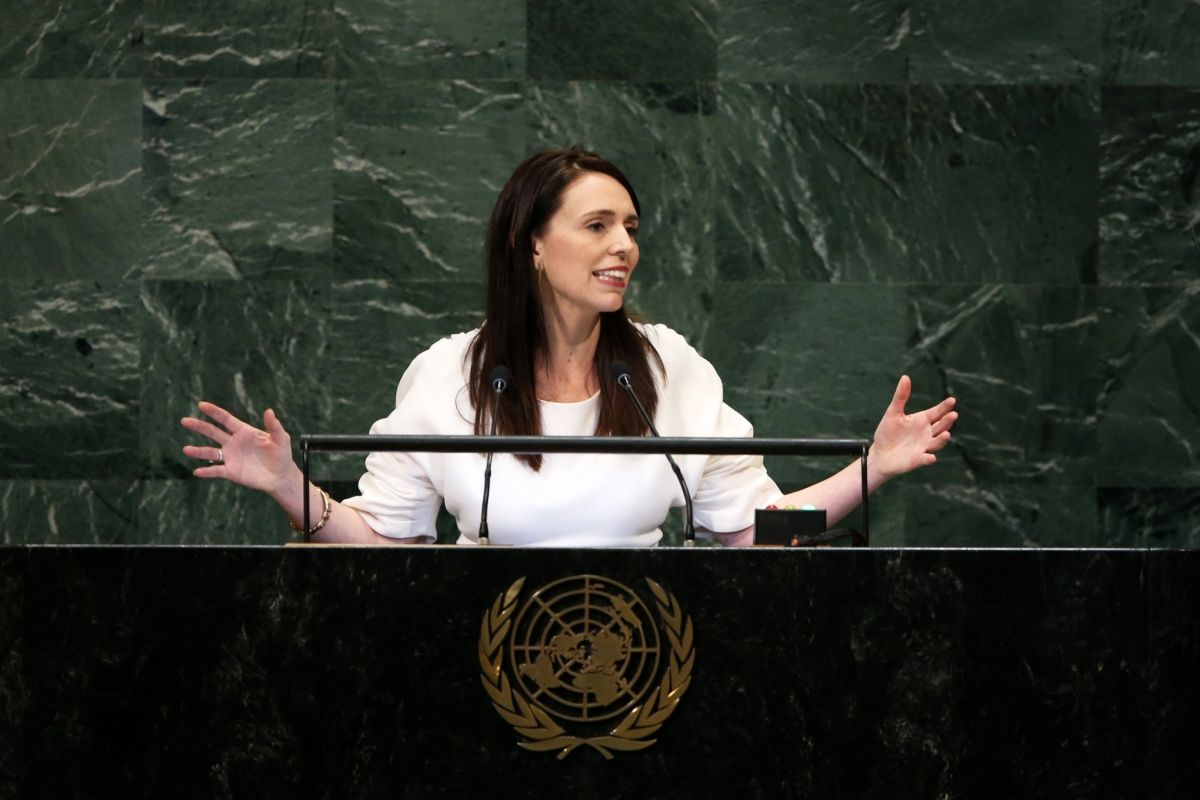New Zealand unveiled its inaugural “wellbeing” budget Thursday in a move set to cement Prime Minister Jacinda Ardern’s reputation for compassionate leadership in the wake of the Christchurch mosque massacre.
Ardern announced increased spending on mental health, indigenous welfare and child poverty in a budget she described as a world-first attempt to change the way economic progress is measured.
Advertisement
“We said that we would be a government that did things differently, and for this budget, we have done just that,” she said.
“Today we have laid the foundation for not just one wellbeing budget, but a different approach for government decision-making altogether.” While dismissed by critics as marketing spin, Ardern views the budget as a way to deliver the reformist agenda she campaigned on in the 2017 election.
The New Zealand leader, widely praised for her respectful handling of the March shooting in which 51 Muslim worshippers were gunned down, said the budget put people before economic indicators.
On the economic front, it predicts a surplus of NZ$3.5 billion in 2018-19, rising to NZ$6.1 billion by 2022-23.
It optimistically forecasts economic growth will average 2.7 per cent over the same period, with inflation hovering around 2.0 per cent and unemployment slightly over 4.0 per cent.
Wellbeing factors, such as life expectancy, education levels, air quality and “a sense of belonging” were also factored into budget decisions.
The Himalayan kingdom of Bhutan first floated the idea of prioritising happiness overgrowth in the early 1970s and introduced a Gross National Happiness Index in 2008.
Many other nations have adopted similar concepts but the New Zealand attempt is being touted as the first time it has been at the core of a government’s spending decisions.
Opposition finance spokeswoman Amy Adams described the approach as a gimmick, calling the budget “all spin and no substance”.
“Apparently it’s about measuring your sun and moon feelings, improving your locus of control, and understanding your ability to be yourself,” she said.
“I have no idea what that means and, outside the Wellington bureaucracy, I’m not sure anyone does,” Ardern argued the wellbeing approach provides real-world benefits, citing reducing child poverty and family violence as a practical example of how it works.
“When our children do better, we all do better,” she said.
“Breaking the cycle of violence saves us costs down the line, but more importantly it makes us a better country and makes children’s lives richer and more fulfilling.” But her feelgood message was almost overshadowed by a bureaucratic bungle that resulted in parts of the budget being released prematurely.
The error resulted in police being called in amid fears the Treasury Department, which is responsible for the budget, had fallen victim to a sophisticated cyber attack.
Initially, Treasury chief Gabriel Makhlouf rejected “absolutely” any suggestion the information had been accidentally posted online.
Makhlouf, who will leave his position next month to become governor of the Central Bank of Ireland, was forced into an embarrassing back down Thursday after police found no evidence that illegal activity was behind the leak.
Instead, the information was released when Treasury prepared a “clone” website ahead of the budget release, not realising that entering specific search terms on it revealed embargoed information.
The opposition National Party, which released the leaked information earlier this week, called for Makhlouf’s resignation, saying he had implied the party was behind an illegal hack.
“Clearly his position is not tenable,” National leader Simon Bridges told reporters.
Finance Minister Grant Robertson, the minister responsible for the budget, expressed disappointment at Treasury’s handling of the matter while Makhlouf did not attend the budget’s unveiling at parliament, contrary to normal practice.











